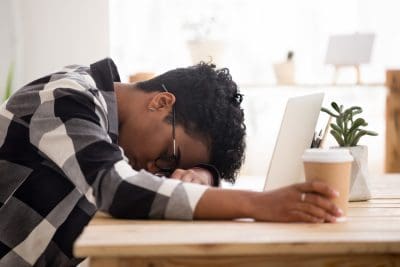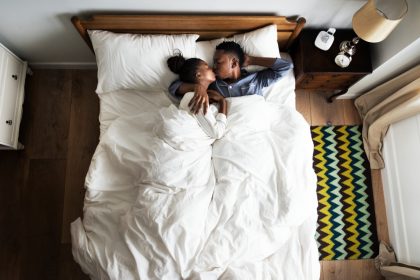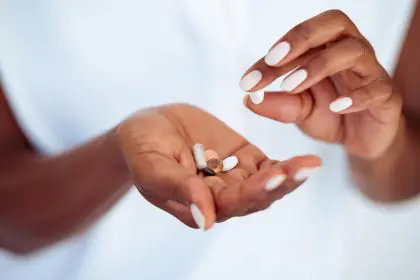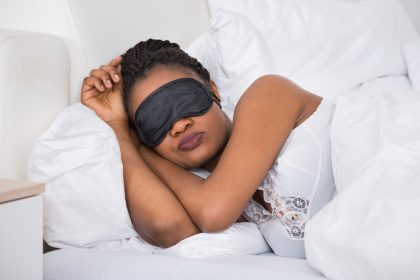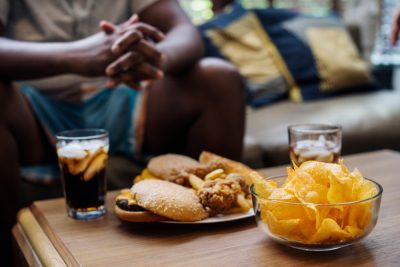
Are you getting enough rest these days? When it comes to sleep, this is one tired nation. According to the Centers for Disease Control and Prevention (CDC) between 35 -45 percent of Americans unintentionally fell asleep during the day at least once and nearly five percent fell asleep while driving during the past month. And these are just the ones who admitted it. In addition to that, take into consideration that there are 50 to 70 million American adults who have sleep or wakefulness disorders. Polls by the National Sleep Foundation also show that 48 percent of Americans report insomnia occasionally and 22 percent experience insomnia just about every night. And as a result, a quarter of Americans are taking a sleep aid to help them nod off. Are you one of them?
Studies show that the average number of hours of sleep that Americans get in a 24-hour period has not changed significantly over the past 40 years; however, due to the demands of work, social activities, and the availability of 24-hour home entertainment and internet access, the quality of sleep has been greatly impacted. We work and play until we drop. Unbeknownst to many, a lack of sleep is a much bigger problem than just being tired. People with insomnia are four times as likely to suffer from depression and are at a greater risk of heart disease, obesity and diabetes. It also increases the risk for psychiatric conditions including depression and substance abuse, and decreases one’s ability to pay attention, react to signals or remember new information. No bueno!
It’s time to make sleep a priority. You must schedule sleep like any other daily activity, so put it on your “to-do list” and cross it off every night. But most importantly, don’t make it the thing you do only after everything else is done – stop doing other things so you get the sleep you need. Sleep is a beautiful thing. This is a time for the body to rest, repair and rebuild.
So what things can you do to get more quality sleep? Here are five simple sleep tips to help you get better Zzzzs.
-
Take a warm shower before bed. We begin to feel sleepy when our body temperature drops. You can enhance this effect by taking a warm bath or shower prior to bed. The contrast between warm shower and cool bed will help you doze off.
-
Lighting is everything. Exposure to bright light during the daytime helps to regulate our sleep/wake cycle. Nighttime light exposure however can be disruptive to sleep. Limit outdoor light by covering windows with curtains and avoid the use of electronic devices in the bedroom. Even the dimmest light can interfere with sleep.
-
Avoid heavy meals before bedtime. The body’s GI system works hard to digest food that can impact your body’s ability to rest. Not to mention after eating there is the potential experience of indigestion, nausea or diarrhea which can also disrupt sleep. Avoid this by passing on light snacks and heavy meals at least 2-3 hours before bedtime.
-
Exercise daily. Exercise at any time of the day can improve sleep. It provides numerous health benefits and burns energy that prompts the body to “want” to rest.
-
Evaluate your bed situation. An uncomfortable sleep surface can greatly impact one’s quality and ability to sleep. The average life span of a “good” mattress is 10 years and even less for others. If you can feel the springs when you lay on your mattress then Houston, you have a problem. As well, make it a practice to change pillows out annually. Some can easily lose their form and for hygienic purposes, why not change them up. They’re inexpensive and are considerably a small price to pay compared to quality sleep. How much is that worth to you.
–nurse aliceFor more tips on how to get better sleep and to stay in the know on other important health matters, follow America’s Favorite Nurse on twitter @AskNurseAlice and tune into her weekly radio segment “Healthy Living with Nurse Alice” Thursdays 9:25am EST on WENO 760AM The Gospel. Nurse Alice is a nationally board certified cardiac clinical nurse specialist at Cedars Sinai Medical Center in Los Angeles, CA and a reoccurring TV/radio health expert and contributor.



